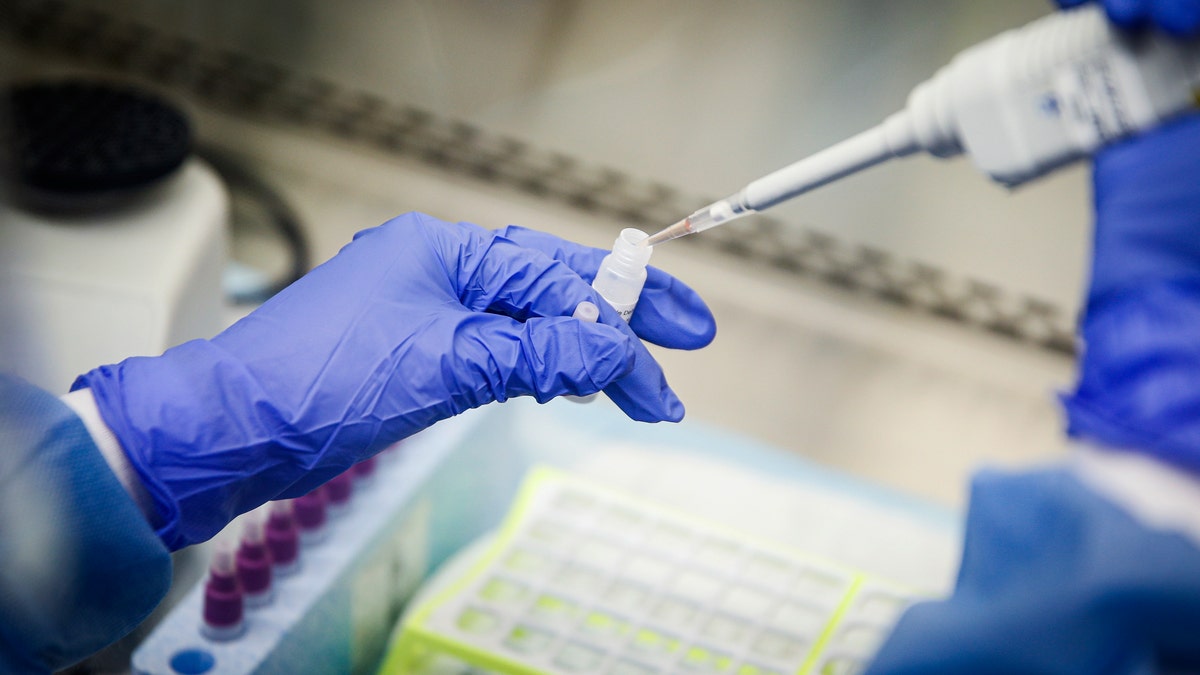Fox News Flash top headlines for May 12
Fox News Flash top headlines are here. Check out what's clicking on Foxnews.com.
Get all the latest news on coronavirus and more delivered daily to your inbox. Sign up here.
When stay-at-home orders went into effect across the U.S. starting in late March, research labs were also shut down. Countless scientists were among those sheltering at home, researching and examining existing data.
However, some decided volunteer their expertise to help different communities respond to the coronavirus pandemic.
One person who chose to pitch in is Jennifer Doudna, of the University of California, who serves as executive director of the school’s Innovative Genomics Institute (IGI).
MELINDA GATES SAYS WHITE HOUSE RESPONSE TO COVID-19 IS 'COSTING LIVES'

A laboratory technician prepares COVID-19 patient samples for semi-automatic testing at Northwell Health Labs, Wednesday, March 11, 2020, in Lake Success, N.Y. (AP)
According to the NIH, Doudna decided to step up and establish a pop-up testing lab at her facility that would boost the SARS-CoV-2 testing in the local community -- despite being a biochemist with no experience in virology or clinical diagnostics
By April 6, pop-up the lab, which is funded through donations and staffed by more than 50 volunteers from UC Berkeley, UC San Francisoc and elsewhere, was fully operational, able to run hundreds of tests daily with a 24-hour turnaround time for results.
"Hats off to everyone who goes the extra mile to get us through this tough time. I am so gratified when, guided by compassion and dogged determination of the human spirit, science leads the way and provides much needed hope for our future," said NIH Director Francis Collins in a blog post.
TOP SCIENTIST WHO BATTLED COVID-19 SAYS 'WE WILL NEVER ... LIVE NORMALLY' WITHOUT A VACCINE
A positive test requires that at least two out of three SARS-CoV-2 genomic targets return a positive signal, and the method uses de-identified barcoded sample data to protect patient privacy.
Doudna, who is also recognized as a pioneer in the development of the popular gene-editing technology called CRISPR, will keep the lab open with her colleagues as long as its services are needed. They've provided testing to first responders, UC Berkeley students and staff and some members of the city's homeless population.










































